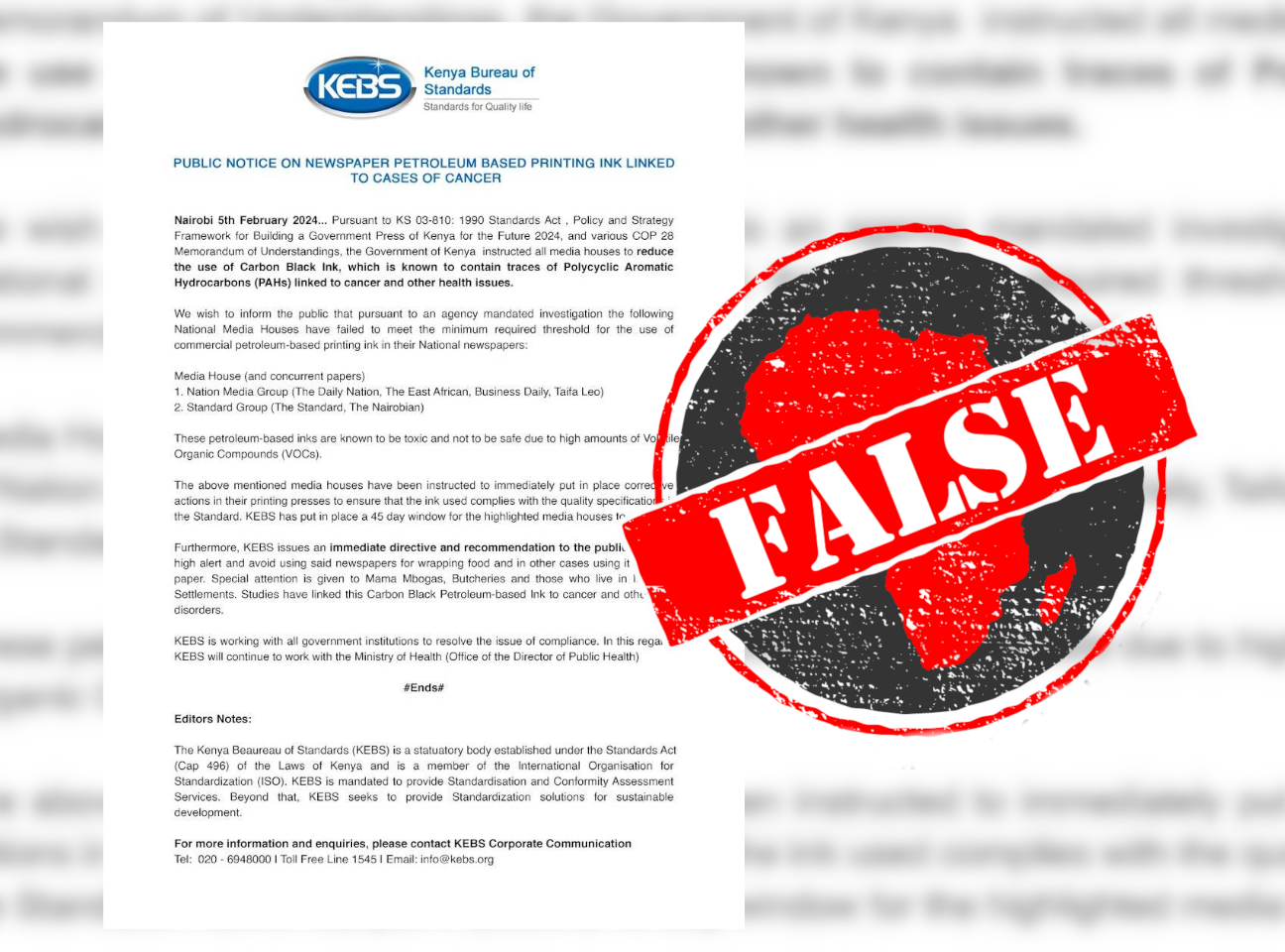IN SHORT: A notice seemingly published by Kenya’s standards bureau is circulating online. It warns readers that certain Kenyan newspapers are using cancerous printing ink. But it is fake.
A notice, apparently from the Kenya Bureau of Standards (KEBS), warns that certain newspapers are using ink linked to cases of cancer.
“KEBS issues an immediate directive and recommendation to the public to be on high alert and avoid using said newspapers for wrapping food and in other cases using it as toilet paper,” reads the notice.
Nation Media Group (NMG) and Standard Group are the two Kenyan media houses that the notice warns Kenyans about.
KEBS is a government agency responsible for governing and maintaining the standards and practices of measurement in Kenya.
On 30 January 2024, after a seven-month investigation, NMG published an exposé which revealed the difficulties Kenyans face when trying to access government services across the country.
On 9 February, NMG published an opinion piece in response to what it described as a coordinated online attack against the media house. It said the hashtag #RIPNationMedia was being used to criticise the media house in an ongoing operation.
The notice has also been posted here, here, here, here, here, here, here and here. Images with a similar message have also been posted on Facebook here, here and here, and on X (formerly Twitter) here, here, here, here, here, here, here, here and here. On both platforms, the images were captioned with the hashtags #RIPNationMedia and #WhatIsNationHiding.
But did the bureau really publish the notice cautioning against buying newspapers from NMG and Standard Group? We checked.

Notice is fake
An online search revealed that no reputable media house had reported on the circulating notice, which would have been the case if it were real. Another red flag is that the notice was not published on any of KEBS's official communication platforms, such as its website or social media pages.
On 6 February KEBS posted the circulating notice on its official Facebook account with the word “fake” printed in red across it.
“This Notice is ‘FAKE’ and has not originated from the Kenya Bureau of Standards,” reads the post.
Media houses such as Citizen TV Kenya and K24 TV also flagged the circulating images as fake.
“Another day, another fake poster. Kindly disregard this message purporting to be from us. Thank You,” reads a post from Citizen TV Kenya.
“Fake News Alert: We would like to inform the public that the following publication is fake and did not originate from People Daily,” reads a post on Facebook from K24 TV.
The circulating notice and images are fake and should be ignored.
Republish our content for free
For publishers: what to do if your post is rated false
A fact-checker has rated your Facebook or Instagram post as “false”, “altered”, “partly false” or “missing context”. This could have serious consequences. What do you do?
Click on our guide for the steps you should follow.
Publishers guideAfrica Check teams up with Facebook
Africa Check is a partner in Meta's third-party fact-checking programme to help stop the spread of false information on social media.
The content we rate as “false” will be downgraded on Facebook and Instagram. This means fewer people will see it.
You can also help identify false information on Facebook. This guide explains how.


Add new comment